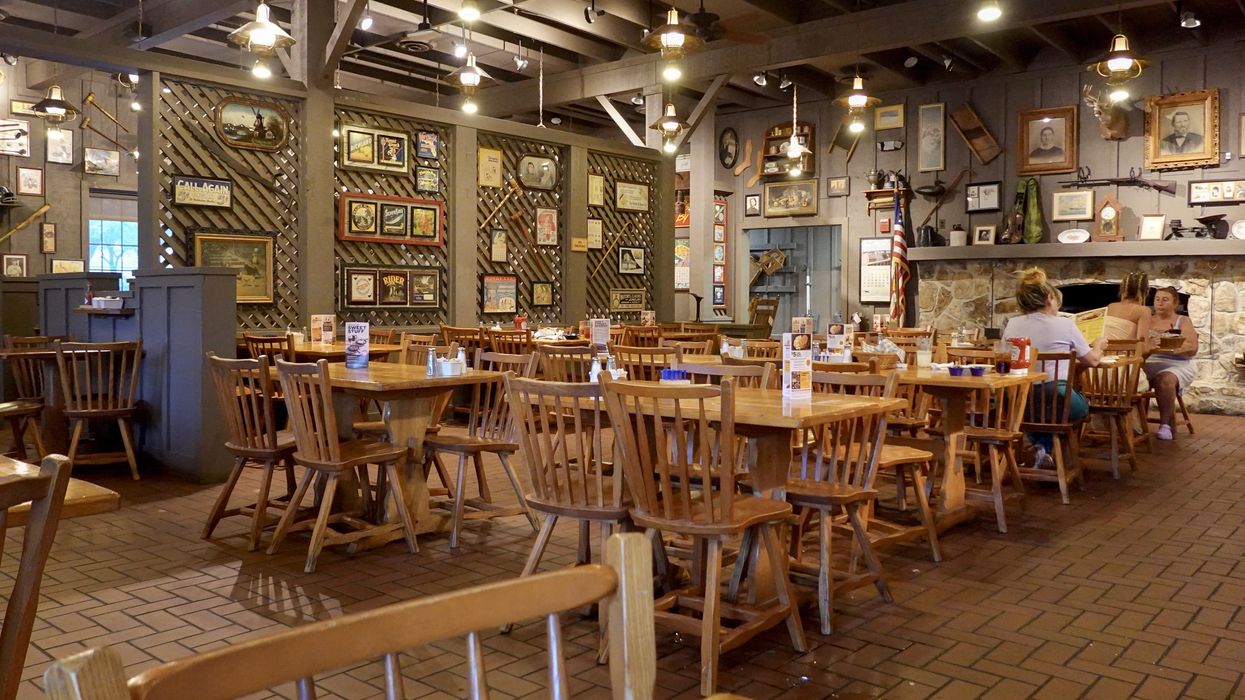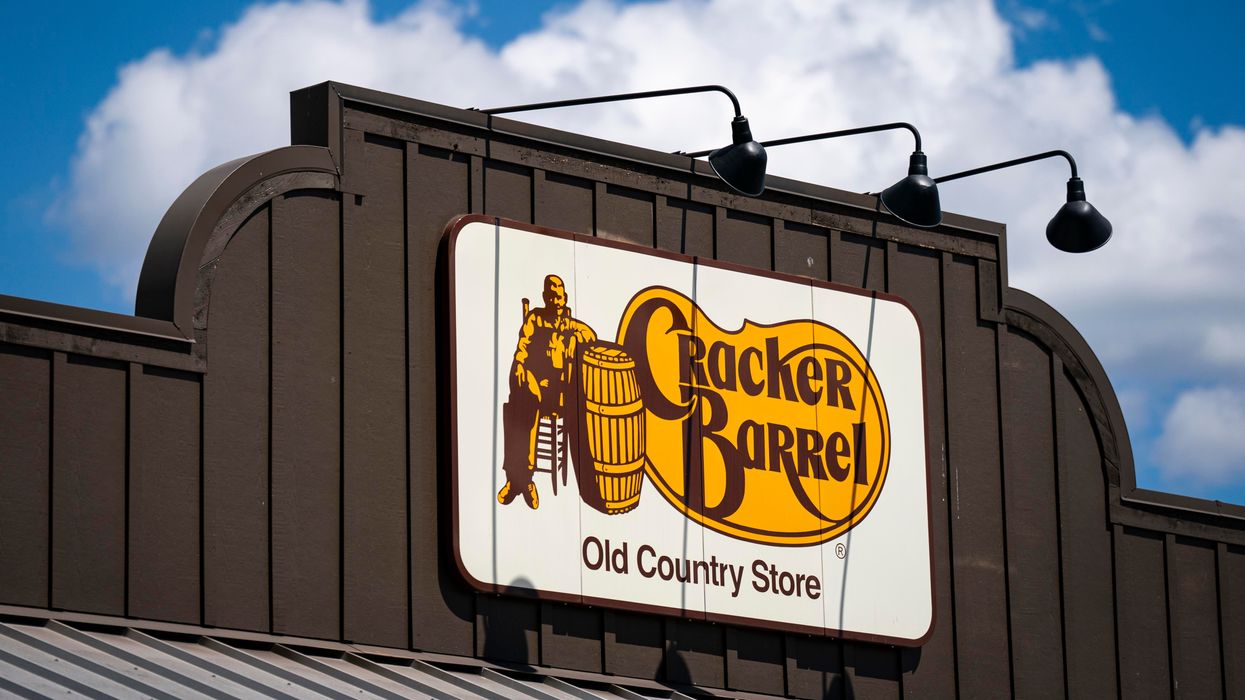
Photo by Joe Raedle / Contributor via Getty Images

Americana shouldn't become just another theme park.
The Old Timer lives to rock his chair another day. In the latest of Cracker Barrel’s many reversals, the company assured customers the old interiors were here to stay. The physical has triumphed over the digital, the "realer" country store representation retained over gray-washed abstraction, and America is quite pleased. The country has managed to hold onto a facsimile of its tangible past, and this is not nothing.
Or is it?
We are nostalgic for being able to engage in the present sufficiently that we create memories.
The controversy over the Cracker Barrel logo reflects a new mood of victory on the resurgent New Right. A sense of humiliation felt over a decade of brands going woke has been replaced by a feeling of power that this pattern is being reversed. But what is the real meaning of this kind of social media activism? Is it really a victory, or rather a victory lap?
Pessimistically, one might say concern over corporate iconography testifies to a form of nostalgia shading into what writer Mark Fisher called Disneyfication. Analyzing Philip K. Dick’s novel "Time Out of Joint," Fisher quotes Fredric Jameson’s "Postmodernism, or, the Cultural Logic of Late Capitalism": "the peculiar ache of nostalgia that 'Time Out Of Joint' engenders, a nostalgia for the present, which Dick achieves by constellating stereotypical images of the decade he was writing at the end of: 'President Eisenhower's stroke; Main Street, U.S.A.; Marilyn Monroe; a world of neighbors and PTAs; small retail stores (the produce trucked in from outside); favorite television programs; mild flirtations with the housewife next door; game shows and contests; sputniks directly revolving overhead, mere blinking lights in the firmament, hard to distinguish from airliners or flying saucers.'"
Cracker Barrel, though presenting itself as a portal to some bygone poultry farmer’s smoking lounge, now actually offers "a nostalgia for the present." It offers this via immediacy, personal memory, and normalcy.
RELATED: Cracker Barrel caves even further to anti-rebrand outrage

The optimistic perspective on this Disneyfication? Digitality is defined in a sense by its lack of presentness. Time-stamped posts position the viewer in an exact relationship to the past, old thoughts bombarded constantly by new ones. One is constantly aware that they have missed something and always reminded they are about to miss even more (or encounter and quickly forget). Cracker Barrel, as a restaurant primarily reserved for family gatherings and social affairs, necessitates that one wipe his blue-light bleary eyes and look up. This immediacy separates it from the YouTube-fare of many other chains and accordingly sees us clinging to it all the more.
Presentness is a requirement to actually engage with the past. Our digital moments seldom become memories, and even more infrequently, memories we bother revisiting. By virtue of Cracker Barrel being an accessible space with an architecture of interaction (wall-items to discuss, games to play, widely palatable food, et cetera), it enables fond family-memory formation. We are nostalgic for being able to engage in the present sufficiently that we create memories.
America is now packed to the gills with all forms of unfamiliar tongues, peoples, and pastimes. Cracker Barrel stands out as a shelter with which the present can be fully enjoyed, removing the diner from recriminations over a Main Street now unrecognizable and inuring us against the tornadic spasms of culture outside its thick double doors. It is a bubble, which, in its wobbly fragility, serves as a funhouse mirror, reflecting a present that could be simple, light, and normal. Inside this sudsy salon is a miniature Target clad in kitsch, a menu that does not embarrass you to order from, and an encampment wherein deleterious social change seems to vanish. It answers a prayer that the country, right now, could be so clean-cut and corralled.
The New Right’s push to retain spaces like Cracker Barrel may blossom into a proper creative drive. Perhaps this is not actually required — it may just need to keep clutching the rocking chair tightly. As many feel their professional and personal lives slipping into the virtual, culturally designated "real world" oases will abound. But the simulacra of these spaces will proliferate, too. Perhaps the restaurant is a welcome reprieve from screen-world. In fact, it may be the definitive escape from the digital world. Or maybe it is just the digital world at an earlier stage of development, repackaged as a comforting and familiar experience.